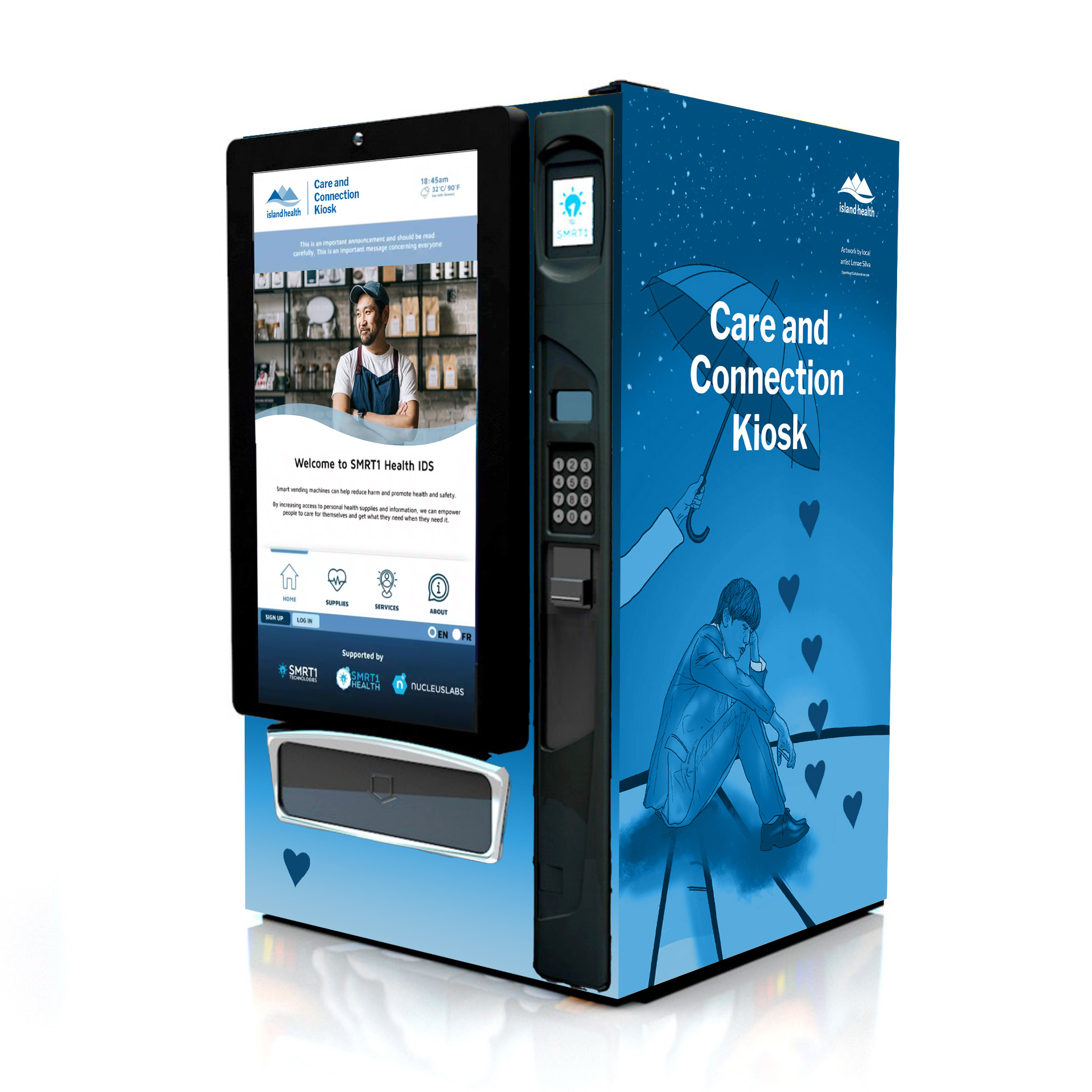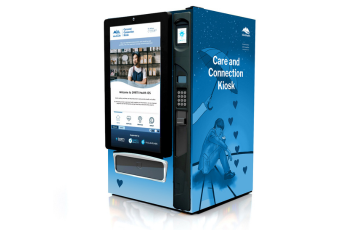Island Health has introduced three care and contact kiosks at hospitals in Campbell River, Nanaimo and Victoria to provide community members an innovative way to access free, life-saving, harm-reduction supplies and related mental health and substance use services , support and treatment information.

Care and connection kiosks will electronically dispense individually packaged harm reduction items including condoms, wound care supplies, naloxone kits, take-home drug test strips, syringes and safe disposal containers. Each kiosk will be located outside the emergency departments at North Island’s Campbell River Hospital, Nanaimo Regional General Hospital and Victoria General Hospital. Kiosks are an alternative for people currently visiting emergency departments seeking harm reduction supplies and services, and supplies provided through kiosks are the most commonly requested supplies in emergency departments.
Mental Health and Addictions Minister Jennifer Whiteside said: “We know that shame and blame can deter people who use drugs from seeking help and the means they need to stay safe, which can often be fatal. “Connected kiosks are discreet and always available, making it easier for more people to get the life-saving supplies and treatment information they need when and where they need it. “
“The stigma around drug use leads to people consuming and dying alone, and sadly, people who use drugs alone in our communities are the most likely to die from uncontrolled drugs,” said Réka, Vice President of Population and Public Sector at Island Health said Dr. Gustafson, Chief Medical Officer of Health. “Substance use affects the health of our population in many ways, and it is our responsibility to care for them in a way that is appropriate for them.”
In addition to harm reduction supplies, the information kiosks will include information about substance abuse treatment, mental health support, community resources and how people can contact local services. Each kiosk will be maintained by a new full-time peer support or addiction and recovery staff member, who will ensure the kiosk is fully stocked, maintain proper syringe disposal and help ensure hospital patients have access to substance use supports and provide a personal connection.
As someone who has worked in outreach work in the Campbell River community for many years and has openly shared his own past struggles with substances, “Namgis Aboriginal” Andy Speck is a perfect fit for his new role associated with the Information Kiosk at North Island Hospital – Campbell River campus.
“When groups of doctors, lawyers, athletes, fishermen, etc. come together, they all speak a common language that they understand, and the same goes for drug users,” Speck said. “When I talk to people, they know almost immediately that I know, and I can identify with them, making it easier to build relationships and connect them with support.”
“We are missing a real target group, which is people working in industry, mainly men, who don’t want to engage in harm reduction services because they fear they will be seen and lose their jobs. It’s great to have kiosks like this , will absolutely save lives,” Speck said.
Starting in late October, the kiosks will be open 24 hours a day to provide supplies to shift workers, people who work during the day and those who wish to remain anonymous.
Research shows harm reduction kiosks can reduce overdose rates, reduce new HIV and hepatitis C infections, and distribute more life-saving naloxone and test strips than in-person services.
Island Health has had 304 deaths this year (as of Aug. 31) from toxic, unregulated substances.
Island Health continues a broad response with multiple partners to address the uncontrolled substances and toxic medicines crisis.
In addition to harm reduction services such as these kiosks, operations focus on prevention and early intervention, treatment, and rehabilitation and relapse prevention. Together, these initiatives address an extremely complex public health emergency and support people across the healthcare continuum to prevent, support, treat and help recover.
Learn about other harm reduction services available:
overdose prevention services
Drug Use and Addiction
Resiliency and Security Grant

